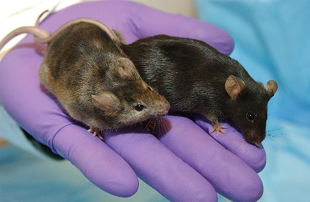 MAGGIE BARTLETT, WIKIMEDIAThe accumulation of senescent cells in the body is associated with the development of a range of age-linked diseases, including arthritis, heart failure, and Alzheimer’s. Now, a mouse study from the Mayo Clinic in Rochester, Minnesota, suggests that purging these cells from the body might stave off the negative effects of aging. The results were published this week (February 3) in Nature.
MAGGIE BARTLETT, WIKIMEDIAThe accumulation of senescent cells in the body is associated with the development of a range of age-linked diseases, including arthritis, heart failure, and Alzheimer’s. Now, a mouse study from the Mayo Clinic in Rochester, Minnesota, suggests that purging these cells from the body might stave off the negative effects of aging. The results were published this week (February 3) in Nature.
“If it’s correct, without wanting to be too hyperbolic, it’s one of the more important aging discoveries ever,” Norman Sharpless from the University of North Carolina, Chapel Hill, School of Medicine, told The Atlantic.
Senescent cells are known to produce harmful molecules that can lead to damage in surrounding tissue. To test the effects of removing these cells, the researchers engineered mice that, when injected with a specific drug, would destroy approximately 70 percent of their senescent cells at a time. The researchers then administered this drug when the animals reached middle age.
Initially, the effects were not obvious. But as the mice aged, the researchers found that treated mice had healthier hearts and kidneys than untreated mice, and developed cancers later in life. The ...














